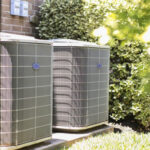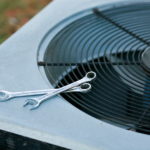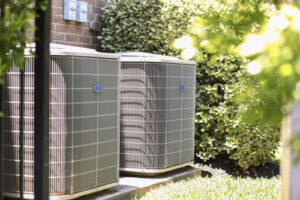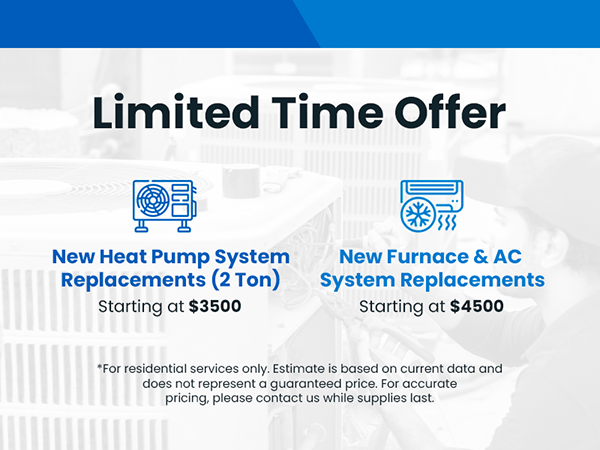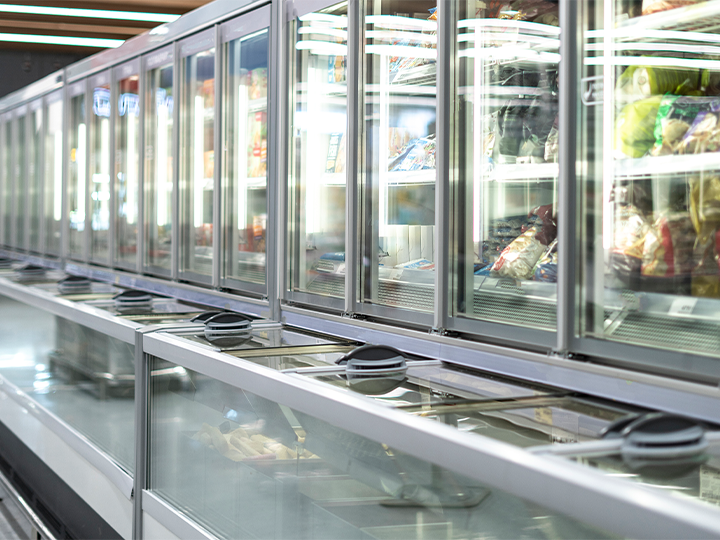
Business owners know that refrigeration is a critical component of many industries, from food service to pharmaceuticals. However, with rising energy costs and increased environmental concerns, the focus on energy-efficient commercial refrigeration solutions has never been more intense. In this guide, you’ll learn all you need to know about this technology—and the host of benefits that adopting it brings.
Understanding Commercial Refrigeration Energy Efficiency
Energy efficiency in commercial refrigeration means keeping the right temperatures while using as little electricity as possible. This can be improved through better compressor design, insulation, and smart controls that adjust to how the system is used.
The type of refrigerant is also important. Choosing refrigerants with low global warming potential helps make refrigeration units more energy-efficient and environmentally friendly. Regular maintenance is key to keeping these systems running efficiently. Routine checks ensure that all parts are working properly, preventing energy waste from worn components or refrigerant leaks.
It’s also important to match the size and setup of the refrigeration unit to your specific needs. Using a system that’s too large or poorly configured can lead to higher energy use, so a tailored design is essential for efficiency.
Key Features of Energy-Efficient Commercial Refrigeration Systems
Energy-efficient commercial refrigeration systems have advanced compressors that use less power and run more quietly than older models. These compressors adjust their output based on the current cooling needs, leading to significant energy savings.
Another key feature is better insulation materials that keep the cold inside the unit more effectively. This reduces how often the system needs to run, saving energy and helping the system last longer.
Smart control systems are also essential, as they optimize temperature settings and defrost cycles. These systems adjust to the refrigeration load and external conditions, ensuring the unit operates efficiently without wasting energy.
Modern, energy-efficient systems use refrigerants with low global warming potential, which are better for the environment. By choosing these eco-friendly refrigerants, businesses can improve energy efficiency and support sustainability efforts.
Benefits of Energy-Efficient Refrigeration for Businesses
Using energy-efficient refrigeration technology can save businesses a lot of money by reducing electricity use, which lowers utility bills and cuts operating costs. It also helps improve a business’s reputation. Showing a commitment to sustainability can attract eco-conscious customers and investors who prefer environmentally friendly practices.
More so, energy-efficient systems require less maintenance and last longer. They run more smoothly with less wear and tear, which means fewer repairs and replacements. Additionally, these systems help businesses meet environmental regulations. By following energy and emission standards, companies avoid fines and contribute to efforts against climate change.
Best Practices for Maintaining Energy Efficiency
To keep commercial refrigeration units running efficiently, regularly inspect and clean them. Make sure coils and fans are free of debris, as blockages can reduce airflow and make the system work harder, using more energy.
Also, replace worn-out seals and gaskets promptly to prevent cold air leaks. If a refrigeration unit isn’t airtight, the compressor will run more often to keep the right temperature, leading to higher energy use. Schedule regular professional maintenance checks as well to ensure your system is working properly. Technicians can spot and fix issues like refrigerant leaks or inefficient compressors that affect energy efficiency.
Meanwhile, upgrading to smart thermostats and advanced control systems can help. These modern tools provide precise temperature control and adaptive defrost cycles, which reduce unnecessary energy use.
Innovative Technologies in Energy-Efficient Refrigeration
New advancements in refrigeration technology include CO2 cascade systems, which use carbon dioxide to improve cooling efficiency. These systems save energy and reduce greenhouse gas emissions significantly.
Variable speed drives are now used in refrigeration units to adjust the speed of compressors and fans based on cooling needs. This helps cut down energy use and improves performance when refrigeration loads vary.
Evaporative coolers are another innovation. They use water evaporation to cool the air around refrigeration condensers, reducing the need for mechanical cooling and lowering energy consumption. Advanced analytics software also helps businesses monitor and manage their refrigeration systems in real-time. It tracks energy use patterns, allowing facility managers to optimize performance and quickly fix any inefficiencies.
How to Choose the Right Energy-Efficient Refrigeration System
To choose the best energy-efficient refrigeration system, start by assessing your business needs. Consider the size of the space, the type of products stored, and the required temperature range to find the right system capacity and features.
Check energy performance ratings to gauge a system’s efficiency. Look for models that meet or exceed ENERGY STAR standards to ensure you’re getting good energy conservation and cost savings.
Then, consult with industry experts or qualified technicians for advice on the latest technologies and models. Their expertise can help you find a system that fits your operational needs and energy-efficiency goals. Also, consider the total cost of ownership, not just the initial purchase price. An energy-efficient system might cost more upfront but can save you money on energy bills and maintenance in the long run.
Boost Your Business Efficiency
At Affordable Aire and Refrigeration, our experts deliver advanced HVAC services that cut costs and boost performance. From installation to maintenance, we ensure your refrigeration systems run efficiently and reliably. Contact us today to enhance your business’s efficiency and sustainability with our comprehensive energy-efficient solutions.


